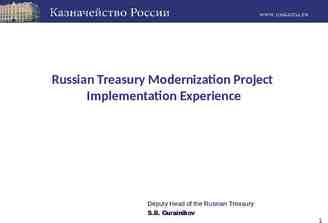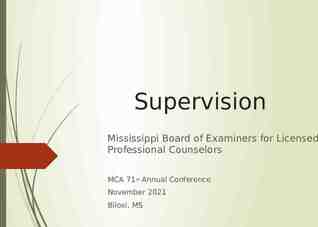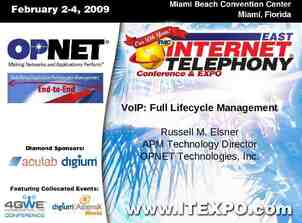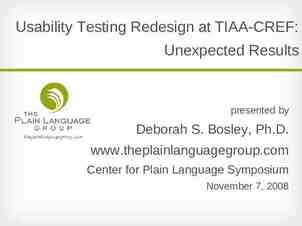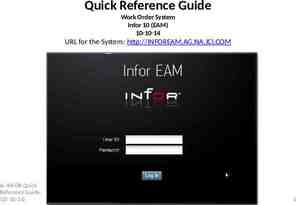Exploring a Career in Clinical and Public Health Microbiology
13 Slides2.57 MB

Exploring a Career in Clinical and Public Health Microbiology

What’s the Difference? Clinical Microbiology Investigates microorganisms that cause infectious diseases. Public Health Microbiology Photo Credit: iStock, User: ronstik Investigates microorganisms that pose threats to the public’s health.

Clinical Microbiologists What do clinical microbiologists do? Utilize digital technology to interpret clinical cultures, perform identification of microorganisms and initiate appropriate antimicrobial susceptibility testing. Develop/validate complex laboratory assays to complement public health goals in an outbreak setting like COVID-19. Where do clinical microbiologists work? Hospital and commercial diagnostic reference laboratories; private industry (e.g., pharmaceutical, etc.); and academia. Photo Credits (top to bottom): www.istockphoto.com/dr microbe; www.bls.gov; www.bls.gov; www.bls.gov.

Careers & Educational Requirements for Clinical Microbiologists Position Education Certification Medical Laboratory Technician (MLT) Associate Degree Completion of an accredited MLT program ASCP certifies scientists who have at least an Associate degree or 60 semester hours (90 quarter hours) of academic credit from a college/university accredited by a recognized regional or national accreditation agency, AND successful completion of a NAACLS or ABHES accredited MLT within the last five years. Certifications include: Medical Laboratory Technician, MLT(ASCP) Medical Laboratory Scientist (MLS Bachelor’s Degree in the biology/healthrelated sciences Completion of an accredited MT program ASCP certifies scientists who have at least a Bachelor’s Degree and have completed MT training. Certifications include: Medical Laboratory Scientist, (MLS)ASCP Specialist in Microbiology, (SM)ASCP Technologist in Microbiology, (M)ASCP Technologist in Molecular Biology, (MB)ASCP Director Level Clinical Microbiologist Advanced Degree (Ph.D., M.D., DPH, D.O. or Sc.D.) in Microbiology/Molecular Biology Post Doc through ASM’s Committee on Postgraduate Education Programs (CPEP) training (optional but desirable) American Board of Medical Microbiology (ABMM) certifies doctoral-level microbiologists who have completed post-doctoral training through a CPEP fellowship or acceptable alternate route. Certification is for diplomate of the ABMM.

Clinical Microbiology Roles Director Required Education: Doctorate Manager (MLS) Supervisor (MLS) Required Education: Masters/Bachelors* Required Education: Masters/Bachelors* MLS – Medical Laboratory Scientist MLT – Medical Laboratory Technician MLS MLT Other Required Education: Bachelors* Required Education: Associates* Required Education: Varies *Clinical laboratory training also required.

Public Health Microbiologists What do public health microbiologists do? Develop and perform diagnostic, outbreak and surveillance testing for infectious diseases in humans. Provide lab testing for a range of environmental & animal samples for pathogens of public health importance. Where do public health microbiologists work? Local, state or national public health laboratories (e.g., CDC, NIH); academia; genetic diseases or environmental laboratories. Photo Credit: CDC Public Health Image Library

Careers & Educational Requirements for Public Health Microbiologists Position Education Certification Public Health Microbiologist Bachelor’s Degree in the biology/healthrelated sciences Completion of at least 6 months training in a clinical or public health laboratory Certification as clinical microbiologist recognized by public health, but not mandatory for most laboratories. Requirements vary by State and by type of public health microbiology testing being performed. Note: To perform testing regulated by CLIA in a public health laboratory, educational requirements are the same as for a clinical microbiologist. Director Level Public Health Microbiologist Advanced Degree (Ph.D., M.D., DPH, D.O. or Sc.D.) in Microbiology/Molecular Biology Post Doc through ASM’s Committee on Postgraduate Education Programs (CPEP) training (optional but desirable) American Board of Medical Microbiology (ABMM) certifies doctoral-level microbiologists who have completed post doctoral training through a CPEP fellowship or acceptable alternate route. Certification is for diplomate of the ABMM. https://asm.org/Certifications/American-Boardof-Medical-Microbiology

Public Health Microbiology Laboratory Roles Director Required Education: Doctorate Manager (MLS) Supervisor (MLS) Required Education: Masters/Bachelors* Required Education: Masters/Bachelors* Microbiologist (various classifications) *May require clinical laboratory training program, or public health laboratory experience Required Education: Bachelors* Lab Tech Other Required Education: Associates* Required Education: Varies

APHL Workforce Survey Average Annual Salaries by Region Public Health Microbiologist (Scientists/Technician) Laboratory Directors/Deputy Directors (Ph.D./M.D.) Association of Public Health Laboratories. Reprinted with permission; all rights reserved.

Annual Salaries Clinical Laboratory Technologists Classifications (MLS/MT/CLS) Clinical Laboratory Technologists Classifications1 Position Avg. Annual Salary Staff 65,000-72,800 Section Manager 82,758 Lab Manager 90,320 2020 Lab Management Salary Survey; Medical Laboratory Observer (MLO); Vol. 52, No. 5 *Salaries vary by region. 1

Annual Salaries* Laboratory Directors/Assistant Directors (Ph.D./M.D.) Laboratory Directors/Assistant Directors1 Position Salary Ranges 60K- 100K 100K- 150K 150K- 200K 200K - 300K Assistant/Associate Director (n: 34) 5 14 10 5 0 Lab Director (N: 97) 4 35 38 14 6 Annual Compensation 2016 ABMM Salary Survey *Salaries vary by region. 1 300K

Is Either Profession for You? If you o o o o o o o o Are interested in healthcare and keeping people healthy. Are fascinated by all kinds of “germs” and their DNA/RNA. Prefer touching test tubes vs patients. Like to perform a variety of tasks. Like to watch things (e.g., microbes) grow. Want to see results soon (compared to several weeks/months). Love to solve “mysteries.” Want to help control spread of bad germs.

Additional Resources To learn more about the clinical and public health microbiology professions, education requirements and certifications available, explore: – American Society for Microbiology – Association of Public Health Laboratories – American Society for Clinical Pathology – National Accrediting Agency for Clinical Laboratory Sciences – American Society for Clinical Laboratory Science (ASCLS) – American Board of Medical Microbiology (ABMM)

